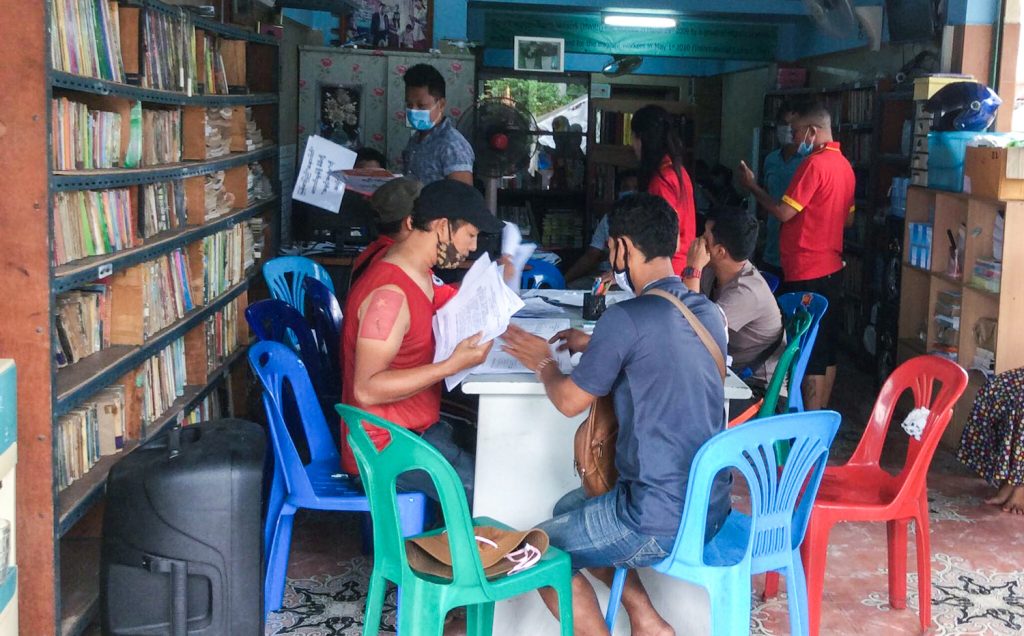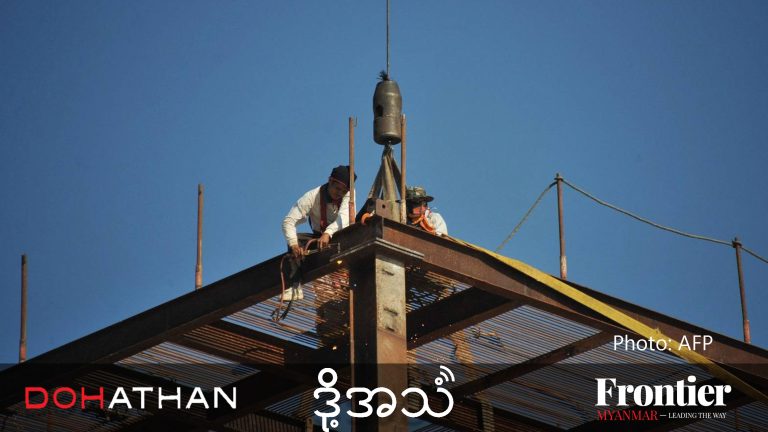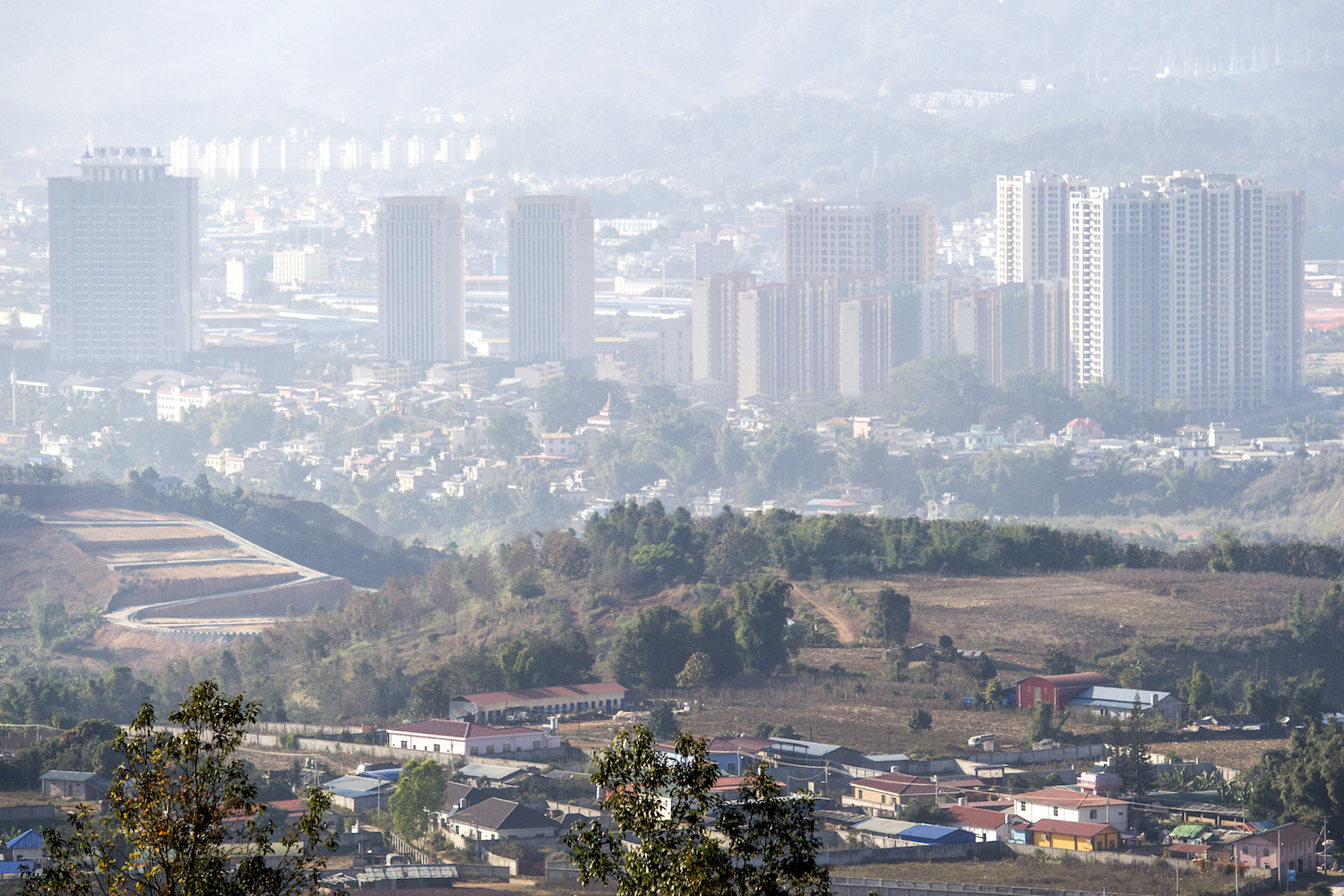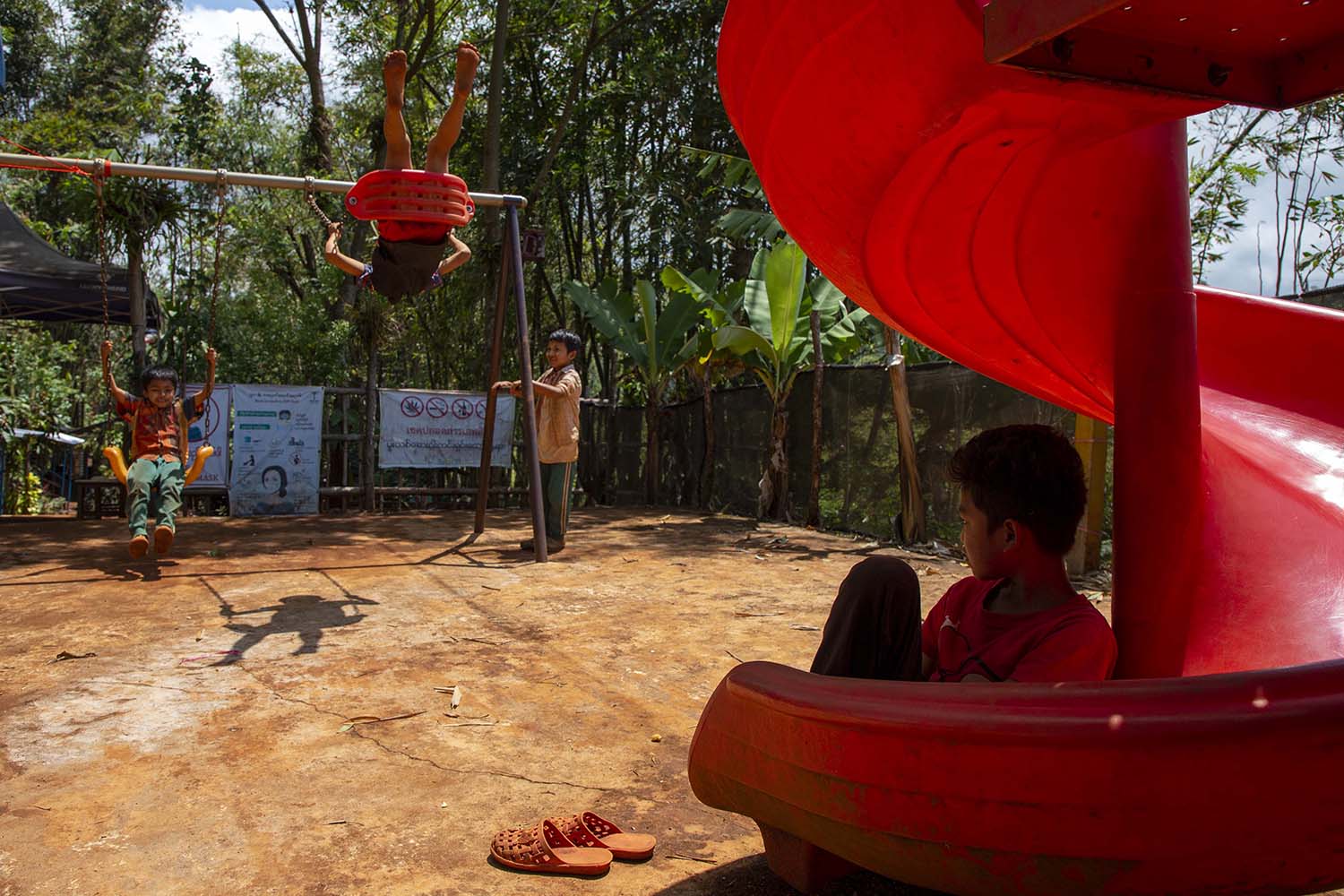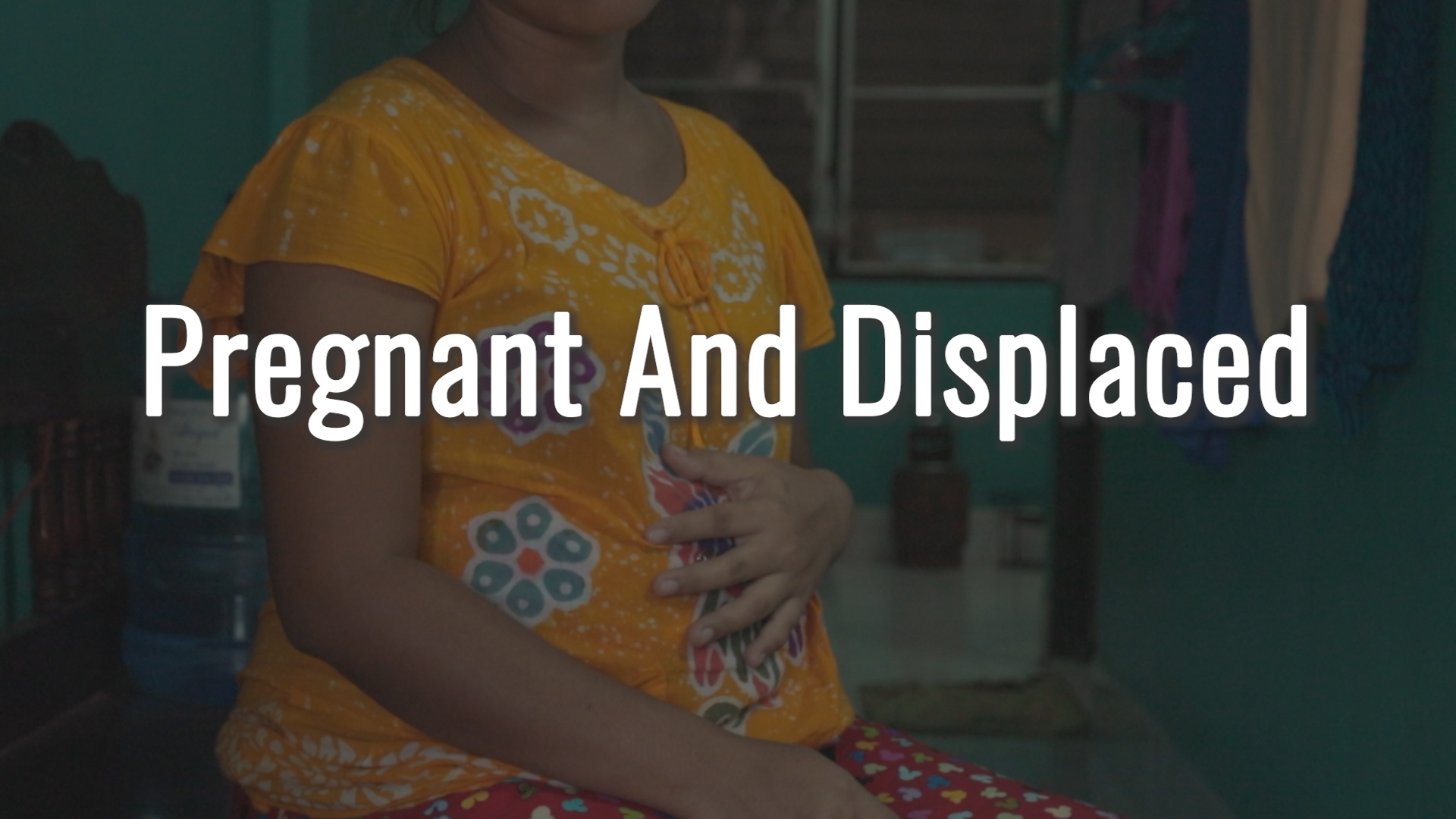Tight registration deadlines, long and costly journeys to embassy polling stations and a lack of accessible information mean most overseas migrants are unlikely to vote this year.
By KAUNG HSET NAING | FRONTIER
Ma Tin Win Lei, a 32-year-old native of Thayetchaung Township in Tanintharyi Region, has never voted in a Myanmar election. For the past 15 years she’s worked in the sardine canneries of Samut Sakhon, a Thai city popularly called Maha Chai about 30 kilometres (18.6 miles) outside of the capital Bangkok.
Before the 2015 general election she sought help registering for overseas advance voting from Samut Sakhon – where some 400,000 Myanmar migrants live and work – but she found only frustration.
“No one knew how to do it, so I gave up,” she told Frontier.
Only about 600 of the estimated 3-4 million migrants, working legally and illegally, in Thailand cast overseas ballots in 2015, Union Election Commission spokesperson U Myint Naing told state broadcaster MRTV in May.
This year, on July 26, Tin Win Lei filled out an advance vote application, called a Form 15, at the office of the Migrant Workers Rights Network in Samut Sakhon. The Thailand-based rights group sent Tin Win Lei’s application along with others to the embassy in Bangkok, enabling her to cast her first vote in a Myanmar election. But for that, she’ll have to travel the 30km from Samut Sakhon to the embassy.
According to preliminary numbers published online by the embassy, by the initial August 5 deadline (since extended to August 14) it had received 15,408 applications for advance ballots, which migrants will have to cast on embassy premises – the only option available to overseas voters.
This figure suggests that the migrant vote count in the election scheduled for November 8 may be significantly higher than five years ago, and the preliminary numbers published by embassies in other countries suggest the same. As of August 6, 34,330 Myanmar migrants had registered in Singapore, 3,852 in Japan, 2,561 in Malaysia and 1,554 in Korea. This is almost double the overseas total from 2015, when a little over 30,000 registered (of whom 20,000 voted).
But in Thailand in particular, which is by far the largest recipient of Myanmar migrant workers, the number of applications represents a tiny fraction of eligible Myanmar voters.
Thailand-based migrant aid group Foundation for Education and Development and the Myanmar-based election observer group the People’s Alliance for Credible Elections surveyed about 1,800 documented migrants in Thailand (who altogether number more than 2 million) in January and February and found that more than 80 percent wanted to vote in the election.
Migrant rights groups and election watchers say the government’s poor facilitation of overseas voting will effectively disenfranchise millions of its citizens that live and work abroad. To start with, the period in which to file Form 15s has been too short for migrants.
On July 2 the UEC announced that citizens abroad could collect a Form 15 from their nearest embassy or consulate – or download it from the UEC, Ministry of Foreign Affairs or embassy website – and should submit them filled out between July 16 and August 5.
That gave migrants – many of whom work six days a week, often far from major cities – just three weeks to file, with a deadline more than three months before the election.
“The announcement came too late and the submission [deadline] was too soon,” said PACE executive director Sai Ye Kyaw Swar Myint.
Completed Form 15s submitted to Myanmar’s embassies abroad are first sent to the UEC, where applicants’ eligibility is checked against government records. Afterwards, the respective embassies release lists of eligible voters. Migrants must go to their embassy or consulate to cast their ballot during the window that the UEC has scheduled for “out-of-constituency” advance voting, October 8-21.
These migrants must choose between candidates who are competing in their home township in Myanmar, and the ballots they cast eventually find their way to the relevant township election sub-commission, and are counted alongside the votes cast in the township on election day.
Under current plans, voting for migrants in Thailand will be limited to the embassy in Bangkok and the consulate in the northern city of Chiang Mai. However, hundreds of thousands of Myanmar migrants are scattered among provinces far from either city.
The cost of a trip into the capital from the country’s south, where migrants are employed in fishing and tourism, starts at about 2,000 baht (US$66), according to FED founder and executive director U Htoo Chit. With the average migrant earning about 330 baht ($10.60) a day, that means a week’s worth of wages.
“It is by no means possible for workers in southern Thailand to go to Bangkok to vote,” Htoo Chit said.
Even in Samut Sakhon, which is relatively close to Bangkok, migrants told Frontier it would cost each worker well over a day’s wage to make the round trip to the embassy, including the cost of a shared taxi, which many migrants feel compelled to use because they don’t have the Thai language skills to navigate the bus system.
The UEC has acknowledged some of the barriers that overseas voters face.
In his interview with MRTV in May, UEC spokesperson Myint Naing said the commission has been discussing with other ministries about potential solutions, including placing polling stations in the offices of labour attachés in the Thai border towns of Mae Sot, Mae Sai and Ranong, where many Myanmar migrants live.
Frontier was unable to contact Myint Naing or anyone else at the UEC for details on that plan.
U Wai Linn Maung, the labour attaché for Mae Sot, told Frontier on July 27 that he had not even heard of this plan and was unsure whether it could be implemented.
He said that he and other diplomatic officers were distributing Form 15s to some Thai factories where migrants work, so that they only need to visit the embassy once to vote, but that reaching migrants spread across Thailand was difficult.
“I’m not sure we can cover the whole of Thailand,” he said, adding that he was also sharing the form on social media and encouraging migrants to download it themselves.
U Kyaw Kyaw Soe, from the Tokyo-based Union of Myanmar Citizen Association-Japan, said the UEC should consider online or postal voting for migrants.
“We must think of alternatives” to in-person voting, said Kyaw Kyaw Soe, who noted that travel in Japan from the rural provinces to the embassy in Tokyo is much costlier than in Thailand. There are 28,000 Myanmar migrants living in Japan, according to UMCAJ.
Even disregarding the restrictions on gatherings that the governments of host countries have imposed to varying degrees to curb the COVID-19 pandemic, it’s uncertain whether Myanmar’s embassies would even be able to accommodate voters if turnout improved from 2015. That year, many migrant voters were forced to wait overnight when more than 15,000 of them showed up to vote at the embassy in Singapore.
If just 1 percent of the 2 million eligible voters in Thailand turned up at the Bangkok embassy, that’d be 20,000 voters, MWRN secretary U Sein Htay pointed out.
But perhaps the greatest barrier to migrants’ voting rights is the lack of accessible information and guidance about how they can vote.
Most migrant workers in Thailand don’t know how to correctly fill out a Form 15 or that it needs to be submitted by August 5, MWRN vice chair U Than Zaw Htike told Frontier on July 30. “Last night I had to fill out forms for about 50 people,” he said, adding that he wants to see the deadline extended by another two weeks. (The UEC ultimately decided to extend it by nine days.)
FED director Htoo Chit said some didn’t even know the Form 15 was required.


